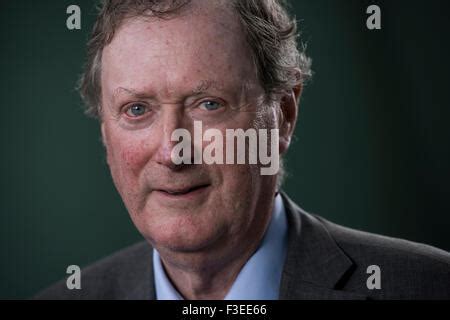A Quote by Ferdinand Mount
Something is happening to Britain and the British. Or has happened. We are said to be passing through a transition, or a turning point, or a transformation; nobody is quite sure which.
Related Quotes
'A Naval History of Britain' which begins in the 7th century has to explain what it means by Britain. My meaning is simply the British Isles as a whole, but not any particular nation or state or our own day... 'Britain' is not a perfect word for this purpose, but 'Britain and Ireland' would be both cumbersome and misleading, implying an equality of treatment which is not possible. Ireland and the Irish figure often in this book, but Irish naval history, in the sense of the history of Irish fleets, is largely a history of what might have been rather than what actually happened.
Who did you pass on the road?" the King went on, holding out his hand to the Messenger for some more hay. "Nobody," said the Messenger. "Quite right," said the King; "this young lady saw him too. So of course Nobody walks slower than you." "I do my best," the Messenger said in a sullen tone. "I'm sure nobody walks much faster than I do!" "He can't do that," said the King, "or else he'd have been here first.
As we go through this transition where a lot more people will be reading on devices, nobody is paying enough attention to make sure it's a smooth transition. I believe we still need places where people can go to handle, hold and talk about books, get information about what books are out there, and so on.
What was happening with me, with the album [A Period of Transition], with the people who took the pictures, the record company, everything, getting a new manager [Harvey Goldsmith]-it was all saying a period of transition to me so that was the title choice. It says what it is and obviously nobody is going to analyze that. It's exactly what it is.
The process of philosophizing, to my mind, consists mainly in passing from those obvious, vague, ambiguous things, that we feel quite sure of, to something precise, clear, definite, which by reflection and analysis we find is involved in the vague thing that we start from, and is, so to speak, the real truth of which that vague thing is a sort of shadow.
From the 1920s into the 1940s, Britain's standard of living was supported by oil from Iran. British cars, trucks, and buses ran on cheap Iranian oil. Factories throughout Britain were fueled by oil from Iran. The Royal Navy, which projected British power all over the world, powered its ships with Iranian oil.
I have no idea what a British sensibility or a British sense of humor is. I have no concept of what that is. I have no concept of what American sensibility is. I was born in Great Britain, but I was only there for six months, and we moved to Belgium, where I grew up. I love Britain, I lived there for nine years doing shows and things, but I don't know what a British sensibility is. I'd like to have someone tell me what an American sensibility is.
The government of the United States doesn't want peace. It wants to exploit its system of exploitation, of pillage, of hegemony through war. It wants peace, but what's happening in Iraq? What happened in Lebanon? Palestine? What's happening? What's happened over the last hundred years in Latin America and in the world?







































